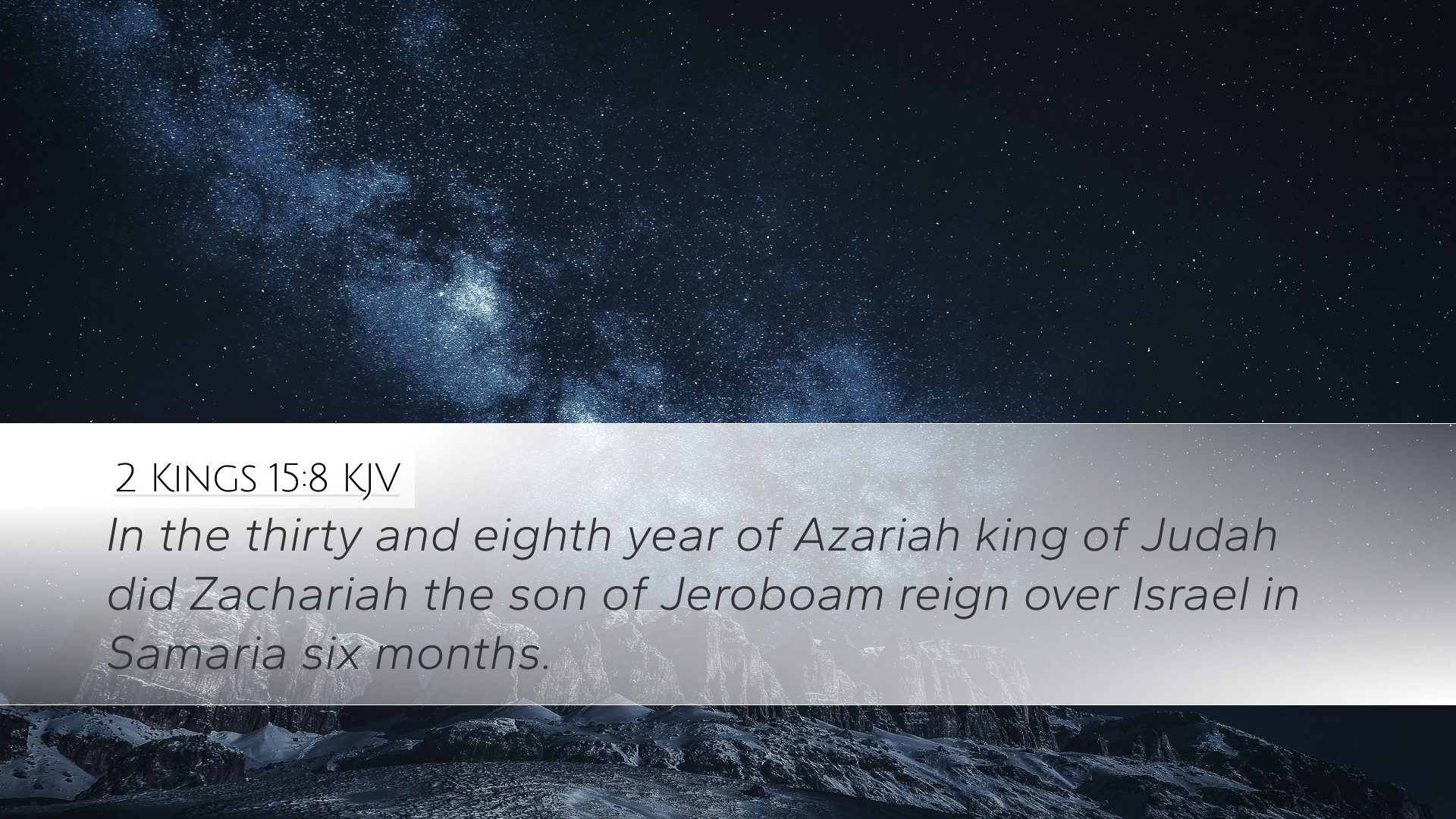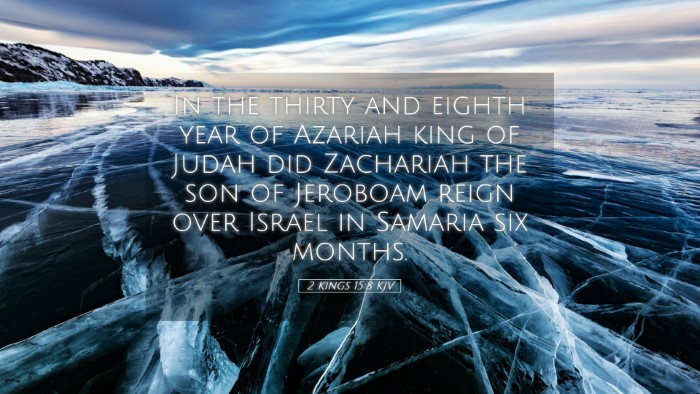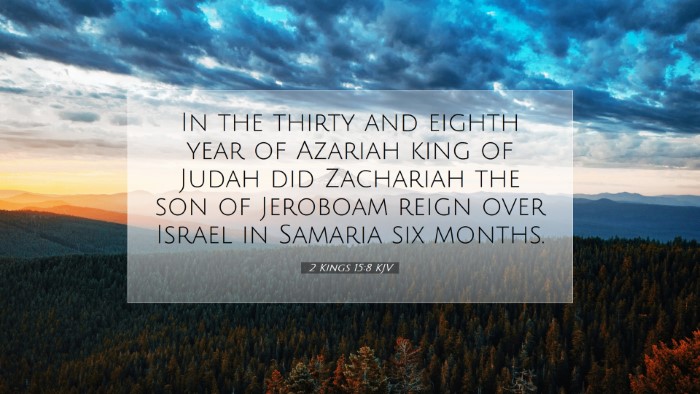Commentary on 2 Kings 15:8
Verse: “In the thirty-eighth year of Azariah king of Judah, Zechariah the son of Jeroboam reigned over Israel in Samaria six months.”
This brief verse introduces us to Zechariah, the son of Jeroboam II, emphasizing the political climate in Israel during this time. The context of this passage provides significant insights into the spiritual and historical landscape of the Northern Kingdom.
Historical Context
At this juncture, Israel is experiencing a turbulent period characterized by political instability and a succession of kings with short reigns. Zechariah's reign of merely six months is emblematic of a broader pattern that has emerged in the Northern Kingdom following the death of Jeroboam II. Matthew Henry notes that Jeroboam II’s long rule had temporarily stabilized Israel, but the aftermath has led to chaos and vulnerability.
Political Significance
Zechariah’s ascension signifies a continuation of the dynastic lineage established by his father. Albert Barnes comments on the significance of specific years in the reign of the kings of Judah, illustrating the ongoing rivalry and differentiation between the Southern and Northern Kingdoms. The mentions of years signify a time marker, helping readers trace the transitions and disruptions in leadership.
Dynastic Transitions
- Hereditary Patterns: Zechariah’s rise to the throne illustrates the hereditary nature of kingship in ancient Israel.
- Divine Judgment: Observers will note that this turbulent period follows a reign marked by idolatry and systemic injustice, reflecting God’s judgment as highlighted by Adam Clarke. The favor of God was clearly conditional upon faithful leadership.
- Fragility of Power: The fact that Zechariah reigned for just six months speaks to the volatility of governance during this era, a theme consistent throughout the Book of Kings.
Theological Implications
The reign of Zechariah can also serve as a theological critique of leadership concerning divine principles. Henry emphasizes the moral aspect, pointing out that the leaders in Israel often failed to instill godliness among the people. Their focus was more on maintaining power rather than adhering to the covenant of God.
Lessons for Today
- Leadership Accountability: Modern leaders could draw parallels from Zechariah's brief tenure, reflecting on the importance of righteousness and accountability in leadership.
- The Role of Faith: Just as the kings were meant to guide the nation in faithfulness to God’s law, contemporary leaders in the church and society are encouraged to uphold and promote biblical values.
- Endurance of God’s Word: Despite the political upheavals, God's sovereign design continues uninterrupted. Clarke notes that God’s ultimate plans will prevail regardless of human chaos.
Conclusion
In summary, 2 Kings 15:8 marks a critical point in understanding the historical and spiritual dynamics of Israel during a time of great upheaval. As pastors, students, and scholars reflect on this brief verse, it serves as a reminder of the importance of faithful leadership, the serious consequences of national sin, and the unwavering sovereignty of God amidst human folly. This passage invites deeper contemplation on how the lessons of ancient Israel remain relevant today as we navigate leadership, accountability, and the pursuit of divine favor in our own institutions.


